
Pucon: The Adventure Capital of Chile
Nestled in the heart of Chile's Lake District, Pucon is a paradise for adventure seekers and nature lovers alike. This charming town is surrounded by breathtaking landscapes, including the majestic Villarrica Volcano, pristine lakes, and lush forests. Whether you're an adrenaline junkie or someone looking to relax, Pucon has something to offer. One of the main attractions in Pucon is the Villarrica Volcano. Adventurous travelers can hike to the summit for a once-in-a-lifetime experience. The hike is challenging but rewarding, offering panoramic views of the surrounding area. In the winter months, the volcano turns into a ski resort, attracting skiing and snowboarding enthusiasts from around the world. For those who prefer water activities, Lake Villarrica is a must-visit. You can go kayaking, sailing, or simply relax on the beach. The lake's crystal-clear waters are perfect for a refreshing swim. Nearby, the Ojos del Caburgua waterfalls offer a tranquil setting for a peaceful day out. Pucon is also known for its hot springs, which are perfect for unwinding after a day of adventure. The nearby Termas Geometricas and Termas de Huife are popular spots where you can soak in natural thermal waters surrounded by stunning scenery. The town itself is full of charm, with cozy cafes, boutique shops, and excellent restaurants. Be sure to try the local cuisine, which includes fresh seafood and traditional Chilean dishes. The vibrant nightlife in Pucon offers plenty of options for evening entertainment, from live music to lively bars.
Local tips in Pucon
- Visit in the summer for hiking and water sports, or in the winter for skiing and snowboarding.
- Book your hike to Villarrica Volcano in advance, as it is a popular activity and spots fill up quickly.
- Pack layers, as the weather can change quickly, especially at higher altitudes.
- Check out the local markets for handmade crafts and souvenirs.
- Rent a car to explore the surrounding areas, as public transport options are limited.
Pucon: The Adventure Capital of Chile
Nestled in the heart of Chile's Lake District, Pucon is a paradise for adventure seekers and nature lovers alike. This charming town is surrounded by breathtaking landscapes, including the majestic Villarrica Volcano, pristine lakes, and lush forests. Whether you're an adrenaline junkie or someone looking to relax, Pucon has something to offer. One of the main attractions in Pucon is the Villarrica Volcano. Adventurous travelers can hike to the summit for a once-in-a-lifetime experience. The hike is challenging but rewarding, offering panoramic views of the surrounding area. In the winter months, the volcano turns into a ski resort, attracting skiing and snowboarding enthusiasts from around the world. For those who prefer water activities, Lake Villarrica is a must-visit. You can go kayaking, sailing, or simply relax on the beach. The lake's crystal-clear waters are perfect for a refreshing swim. Nearby, the Ojos del Caburgua waterfalls offer a tranquil setting for a peaceful day out. Pucon is also known for its hot springs, which are perfect for unwinding after a day of adventure. The nearby Termas Geometricas and Termas de Huife are popular spots where you can soak in natural thermal waters surrounded by stunning scenery. The town itself is full of charm, with cozy cafes, boutique shops, and excellent restaurants. Be sure to try the local cuisine, which includes fresh seafood and traditional Chilean dishes. The vibrant nightlife in Pucon offers plenty of options for evening entertainment, from live music to lively bars.
When is the best time to go to Pucon?
Iconic landmarks you can’t miss
Parque Ojos del Caburgua
Explore the mesmerizing turquoise waters and lush landscapes of Parque Ojos del Caburgua, a natural gem in Chile's Araucanía region.

Parque Nacional Villarrica
Explore the awe-inspiring Parque Nacional Villarrica, a national park in Chile featuring breathtaking landscapes, diverse wildlife, and thrilling outdoor adventures.
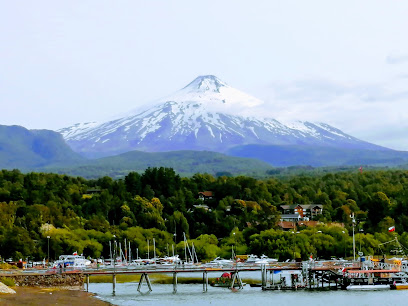
Plaza de Armas de Pucón
Experience the vibrant heart of Pucón at Plaza de Armas, a cultural hub with stunning views of the Villarrica Volcano and local artisan charm.

Playa Grande
Experience the breathtaking beauty and adventurous spirit of Playa Grande in Pucón, Chile, where relaxation meets outdoor excitement.
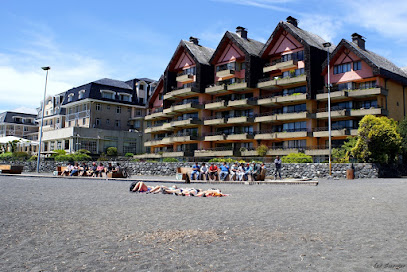
Parque Nacional Huerquehue
Explore the breathtaking Parque Nacional Huerquehue, a sanctuary of natural beauty and adventure in Araucania, Chile, perfect for hiking and nature lovers.
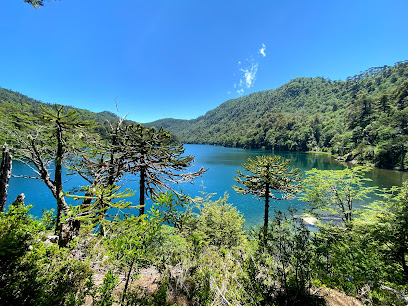
Salto la China
Discover the majestic Salto la China waterfall near Pucón, Chile: a perfect blend of natural beauty and thrilling adventure in the heart of Araucanía.

Centro de Ski Pucón
Experience thrilling skiing and breathtaking views at Centro de Ski Pucón, a premier ski resort in Chile's stunning Valparaíso region.
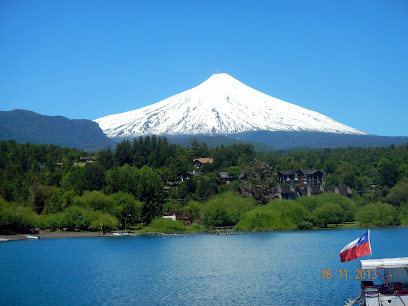
Salto El Léon
Discover the majestic Salto El León near Pucón: a stunning waterfall, lush trails, and serene thermal pools await in Chile's Araucanía region.
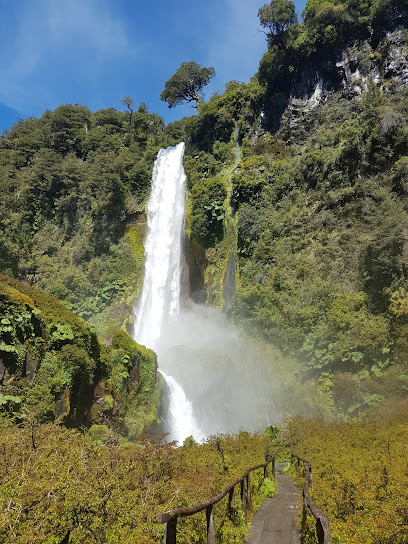
Trawen
Experience authentic Chilean cuisine at Trawen in Pucón, where local flavors and warm hospitality create an unforgettable dining experience.
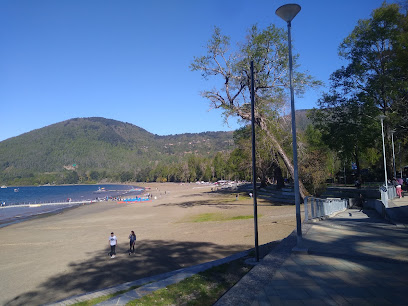
Termas Quimey-Co
Escape to Termas Quimey-Co in Pucón: Relax in natural hot springs surrounded by stunning Araucanía landscapes.

Gran Hotel Pucón
Discover luxury and adventure at Gran Hotel Pucón, your ideal retreat in Chile's stunning Araucanía region.
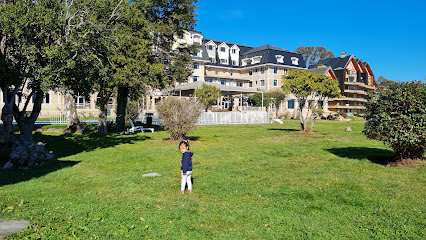
Volcanic Caves Park
Experience the breathtaking beauty and rich history of Volcanic Caves Park in Pucón, Araucania—a must-visit destination for nature lovers and adventure seekers.

Restaurante Vas para Chile
Experience the authentic flavors of Chile at Restaurante Vas para Chile in Pucón, offering a delightful menu in a cozy atmosphere.
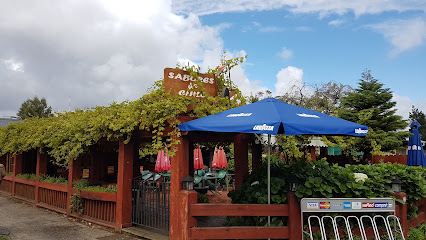
Santuario El Cañi
Explore the serene nature preserve of Santuario El Caño, where breathtaking landscapes and rich biodiversity await every nature lover.

Chili Kiwi Hostel
Discover the adventure of Pucón from the vibrant and welcoming Chili Kiwi Hostel, your perfect base for exploring Chile's stunning Lake District.
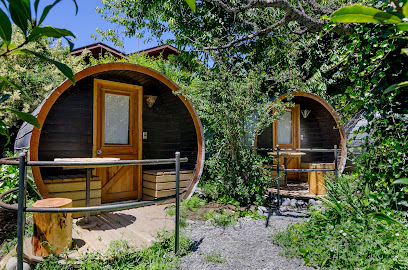
Unmissable attractions to see
Playa Grande Lican Ray
Experience the breathtaking beauty of Playa Grande in Lican Ray, a perfect blend of relaxation and adventure by the stunning Lake Calafquén.
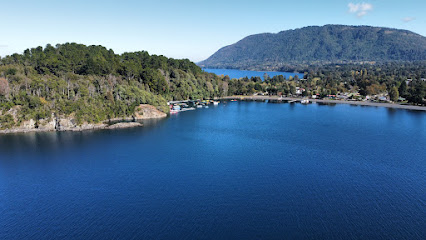
Parque Nacional Villarrica
Discover the stunning landscapes and adventurous activities at Parque Nacional Villarrica, a top destination for nature lovers and thrill-seekers in Chile.
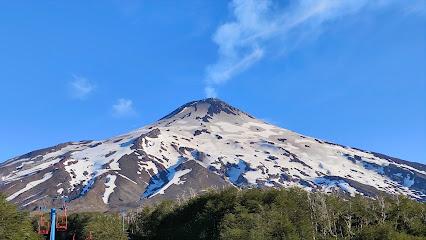
Termas Geometricas
Experience unparalleled relaxation at Termas Geometricas, a stunning thermal bath retreat in the heart of Chile's lush Parque Nacional Villarrica.

Plaza de Armas de Pucón
Explore the vibrant heart of Pucón at Plaza de Armas, a historical landmark surrounded by stunning landscapes and rich local culture.
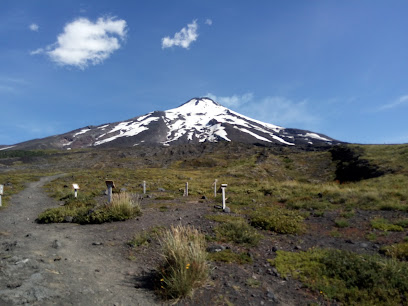
Playa Grande
Experience the breathtaking beauty of Playa Grande, a stunning beach in Pucón, Chile, where adventure meets relaxation amidst stunning landscapes.
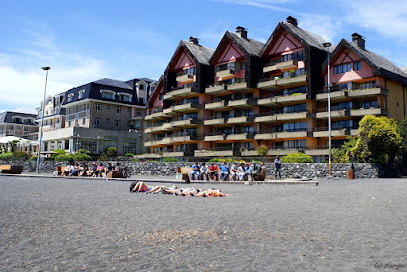
Mercado Fritz,Villarrica
Explore Mercado Fritz in Villarrica for an authentic taste of local culture, delicious food, and unique crafts in the heart of Chile's Araucanía region.
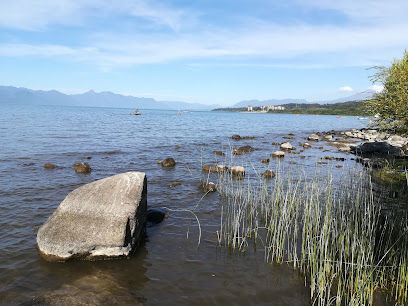
Enchanted Forest Pucon
Experience the enchanting charm of Enchanted Forest Pucón, a magical theme park in Araucanía, Chile, perfect for families and adventure seekers alike.

Parque Nacional Huerquehue
Explore the breathtaking landscapes and rich biodiversity of Parque Nacional Huerquehue, a must-visit national park in Chile's stunning Araucanía region.

Casino Enjoy Pucón
Discover the vibrant energy of Casino Enjoy Pucón, where gaming thrills meet the stunning landscapes of Araucanía, Chile.
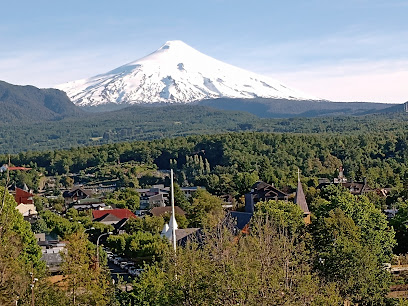
Salto la China
Experience the breathtaking beauty of Salto la China, a stunning waterfall in Pucón, surrounded by lush forests and vibrant nature.

Salto la China
Discover the breathtaking beauty of Salto la China, a stunning waterfall in the heart of Araucanía, Chile, surrounded by lush nature and serene trails.

Centro de Ski Pucón
Discover the ultimate winter adventure at Centro de Ski Pucón, a premier ski resort offering breathtaking slopes and vibrant alpine culture.

Centro de Ski Pucón
Experience the thrill of winter sports and breathtaking views at Centro de Ski Pucón, a premier ski resort in the heart of Chile's natural beauty.
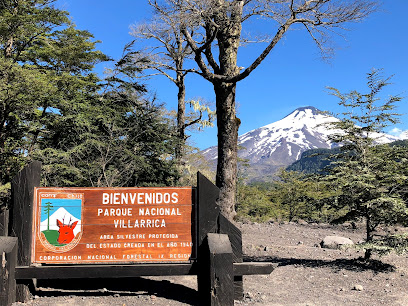
Salto El Léon
Explore the enchanting Salto El León, a stunning ecological park in Pucón, Chile, renowned for its breathtaking waterfalls and vibrant natural landscapes.

Termas Vergara
Discover relaxation in nature's embrace at Termas Vergara, a serene hot spring oasis in Panguipulli with therapeutic thermal waters and stunning landscapes.

Essential places to dine
La Maga Uruguayan Steakhouse
Experience authentic Uruguayan flavors at La Maga Steakhouse in Pucón – where every bite tells a delicious story.
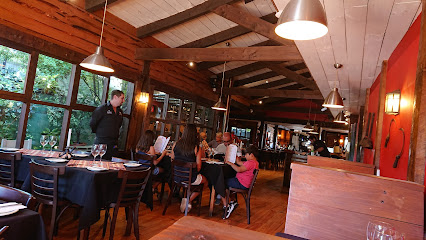
Pizza Cala
Discover Pizza Cala in Pucón: Where every slice tells a story amidst stunning Araucanía landscapes.
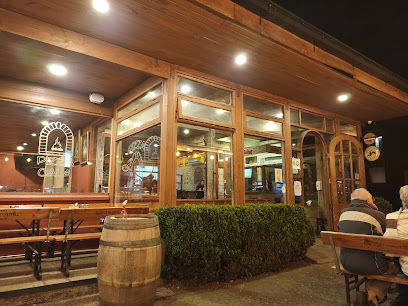
Raíces
Discover the flavors of Chile at Raíces in Pucón - where traditional meets contemporary in every dish.
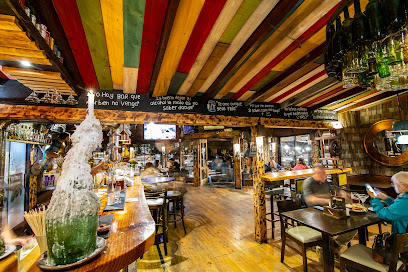
Trawen
Discover the essence of Chilean cuisine at Trawen in Pucón - where local flavors meet warm hospitality.

ANDIAMO - Pizza - Pasta fresca - Carne y Pescado - Retiro local
Experience authentic Italian cuisine at Andiamo in Pucón – savor delicious pizzas, fresh pastas, and exquisite meats in a cozy atmosphere.
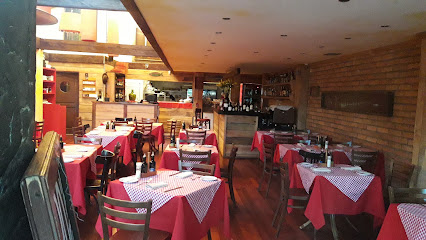
Black Forest Pucón
Experience fresh sushi delights in the heart of Pucón at Black Forest, where authentic Japanese flavors meet local charm.
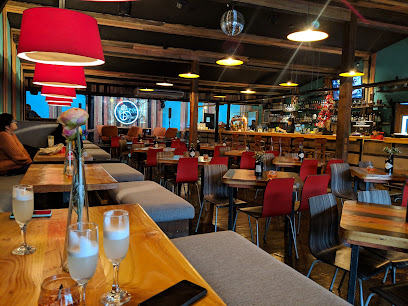
Fiorentini
Discover authentic Mediterranean flavors at Fiorentini in Pucón – where every meal is a delightful journey through taste.
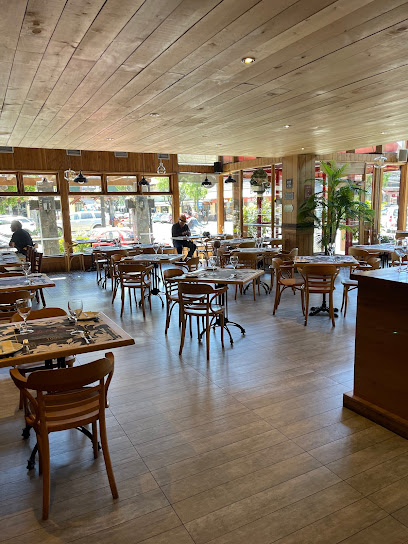
Comida De La Revancha Del Chino LEE-CHONG
Discover authentic Chilean cuisine at Comida De La Revancha Del Chino LEE-CHONG in Pucón - a delightful experience for food lovers.
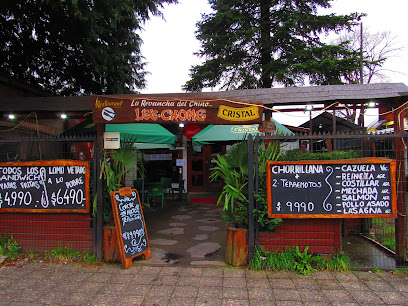
La Fábrika
Discover La Fábrika in Pucón - where local ingredients meet culinary creativity for an unforgettable dining experience.
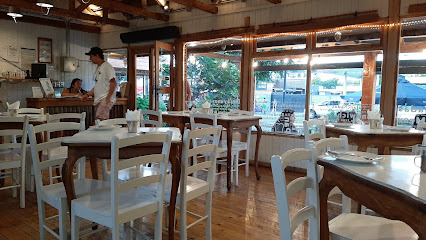
Restaurant El fogon de Pucon
Experience authentic Chilean cuisine at El Fogón de Pucón, where grilled specialties meet local flavors in a charming setting.
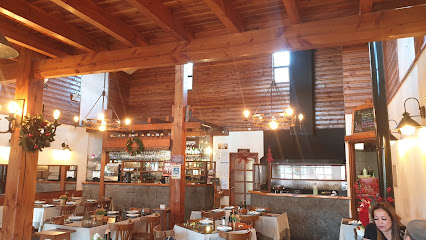
Ruka Pucon Restaurante
Discover Ruka Pucon Restaurante: A culinary haven in Pucón serving exquisite local dishes amidst stunning Andean views.
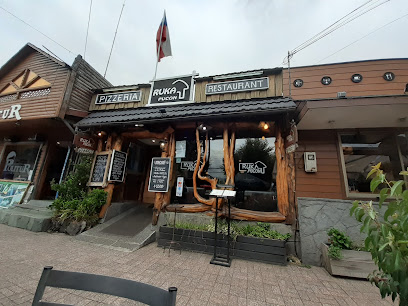
Mora Sushi Bar
Discover fresh sushi delights at Mora Sushi Bar in Pucón - where quality meets authenticity in every bite.
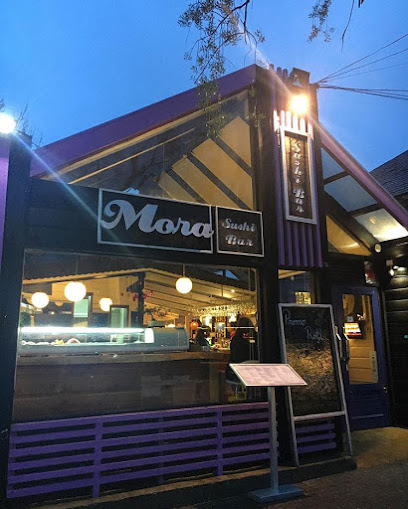
Restaurante Vas para Chile
Experience authentic Chilean cuisine at Restaurante Vas para Chile in Pucón – where tradition meets flavor in every dish.

D' TOROS
Experience the best of Chilean cuisine at D' TOROS in Pucón—where tradition meets taste in every delicious bite.
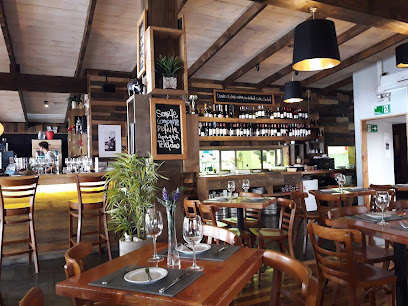
Espacio École
Experience the best of vegetarian cuisine and live music at Espacio École in Pucón – where flavors meet culture!
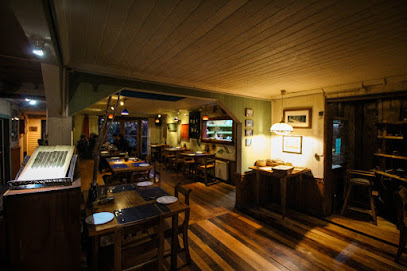
Markets, malls and hidden boutiques
Casaideas
Shop unique home goods and souvenirs at Casaideas in Pucón, a vibrant store reflecting Chilean creativity and design.
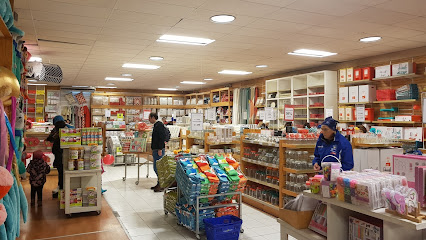
Doite
Explore high-quality outdoor apparel and stylish clothing at Doite in Pucón, Chile, for all your adventure needs.
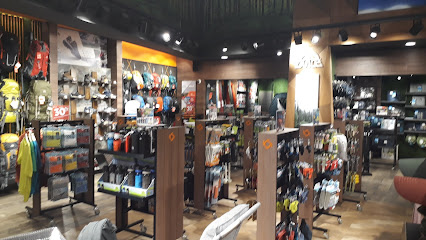
Patagonia Pucón
Explore the great outdoors with top-notch gear from Patagonia Pucón, your ultimate outdoor sports store in the heart of Chile's adventure capital.
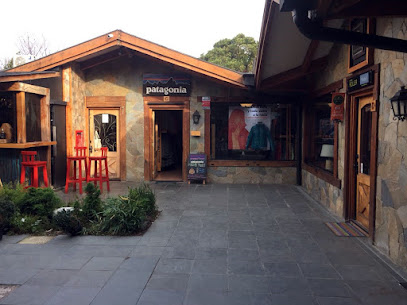
AK Hand Made in Pucón
Explore the charm of local craftsmanship at AK Hand Made in Pucón, where every accessory tells a unique story of tradition and artistry.
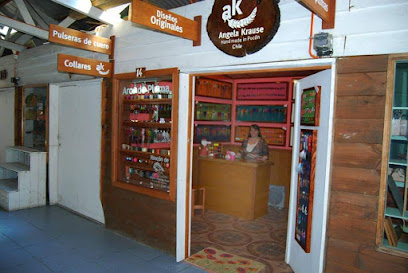
The North Face Pucón – Galería Suiza Local
Discover quality outdoor apparel and gear at The North Face Pucón – your adventure starts here in beautiful Araucanía.
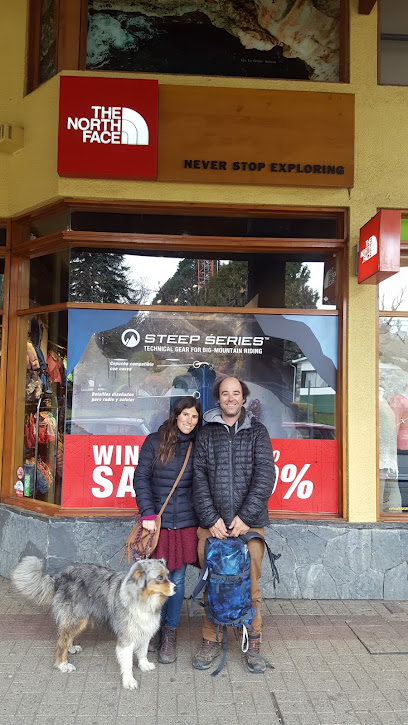
Volkanica Outdoors - Pucon
Experience the essence of adventure at Volkanica Outdoors in Pucon, your ultimate outdoor sports gear destination.
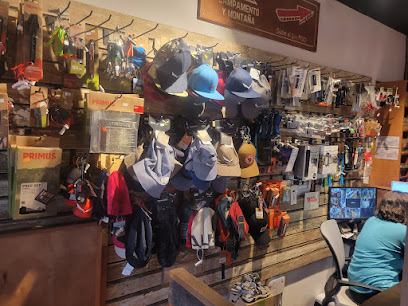
Havaianas Pucón
Explore Havaianas Pucón for stylish footwear and accessories reflecting the vibrant culture of Araucania, perfect for your travel adventures.
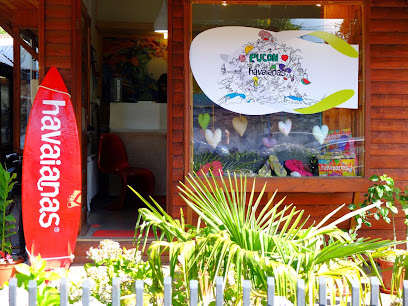
Barrio del Artista
Discover the colorful charm of Barrio del Artista in Pucón, a shopping mall that offers a unique blend of local art, crafts, and delicious cuisine.
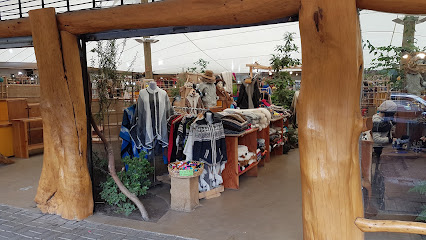
Bodega Americana Pucón
Discover Bodega Americana Pucón, your go-to destination for quality outdoor gear and stylish men's clothing in the heart of Pucón, Chile.
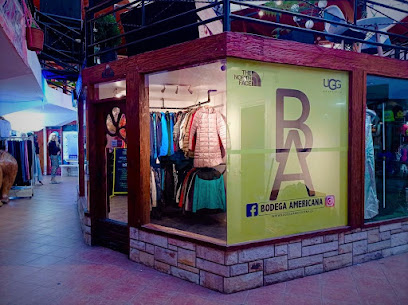
Duck House
Explore Duck House in Pucón for unique handcrafted gifts and souvenirs that celebrate Chile's vibrant culture and artistry.
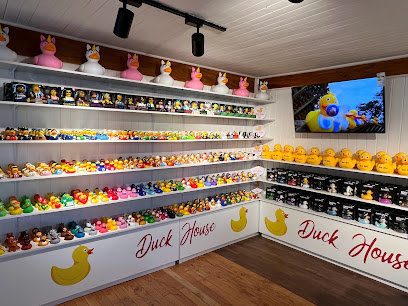
Rockford Pucón
Explore Rockford Pucón, your ultimate destination for quality footwear and a unique shopping experience in the heart of Pucón.
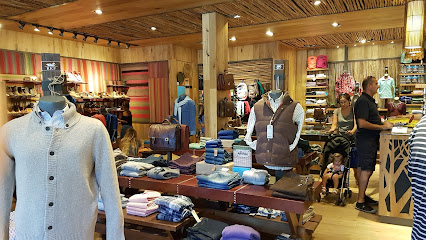
Pueblito Cultural - Artes del Sur
Explore the vibrant artistry of Pueblito Cultural - Artes del Sur in Pucón, showcasing authentic local crafts and a rich cultural heritage.
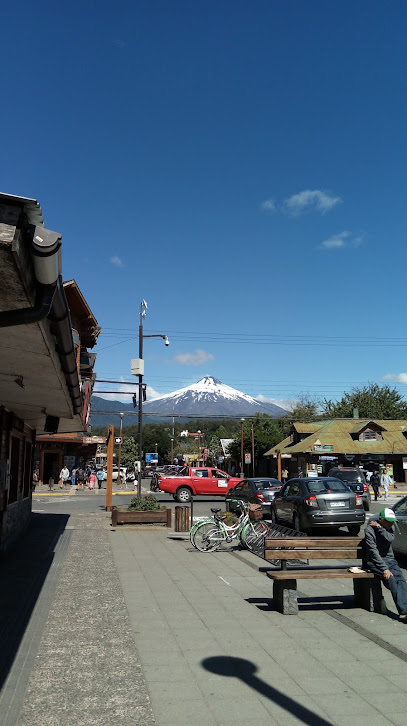
Victorinox Pucon
Explore Victorinox Pucon, your ultimate destination for unique gifts and outdoor gear in the heart of Pucón, capturing the essence of Chilean culture.
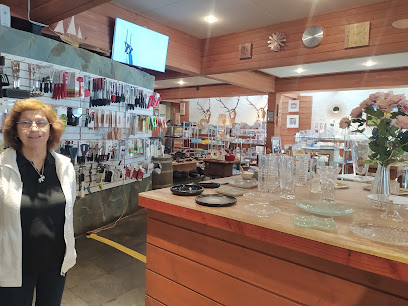
A-Shop Pucon
Explore the outdoors with A-Shop Pucon, your premier destination for adventure gear in the breathtaking landscapes of Chile.
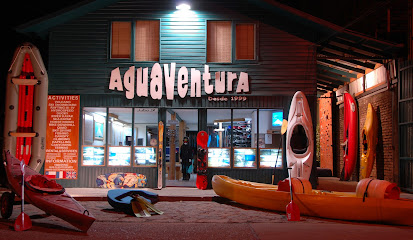
LATRAPA
Discover stylish women's clothing at LATRAPA, the chic boutique in Pucón, Araucanía that embodies contemporary fashion and local flair.
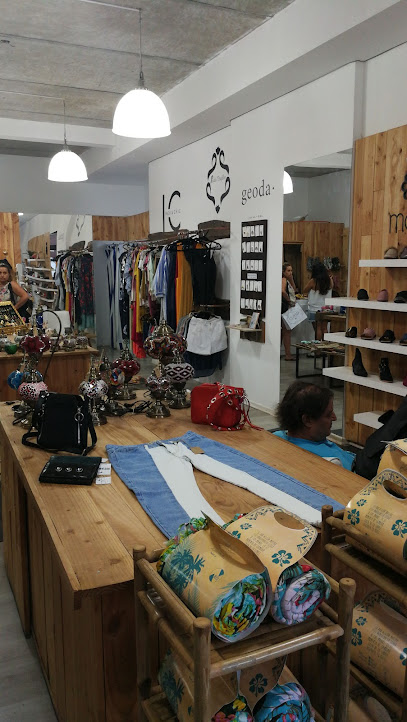
Essential bars & hidden hideouts
El Camino
Discover a delightful fusion of local and international flavors at El Camino, the vibrant culinary gem in Pucón, Araucanía.
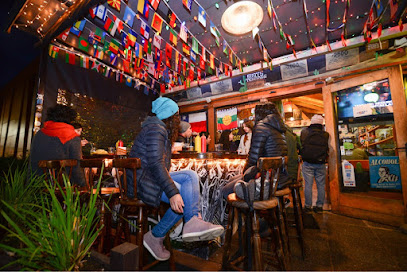
Mama's & Tapas
Experience the vibrant blend of grill and tapas cuisine at Mama's & Tapas in Pucón, where flavors and fun come together for an unforgettable night.
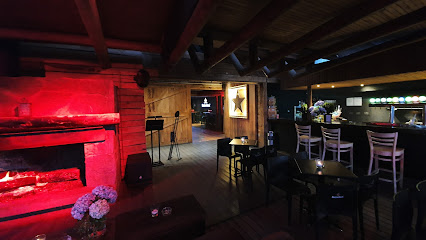
Black Forest Pucón
Savor the exquisite fusion of flavors at Black Forest Pucón, a premier sushi restaurant in the heart of Araucanía, Chile.

BEERHOUSE BAR PUCON
Discover the vibrant brewpub culture of Pucón at Beerhouse Bar, where craft beers meet gourmet burgers in a lively atmosphere.
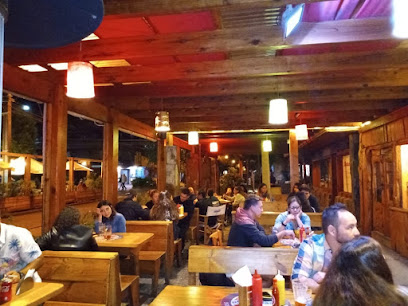
Beanies&Bikinis
Experience the vibrant nightlife at Beanies & Bikinis, a premier sports bar in Pucón, perfect for sports fans and fun-seekers alike.
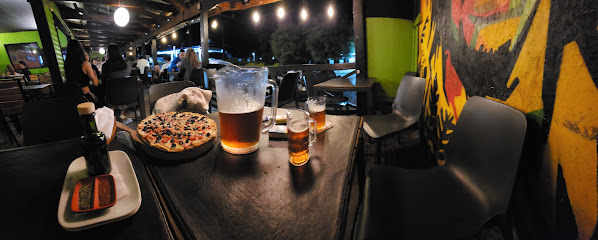
Rock N' Blues Pucón
Discover the vibrant culinary and musical scene at Rock N' Blues Pucón, where every meal is a celebration of local flavors and live entertainment.
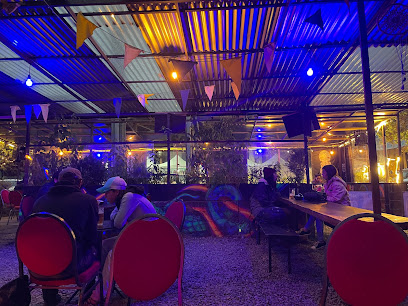
The Gang Restobar
Discover the vibrant flavors of Chile at The Gang Restobar, a top gastropub in Pucón offering a unique culinary experience with local ingredients.
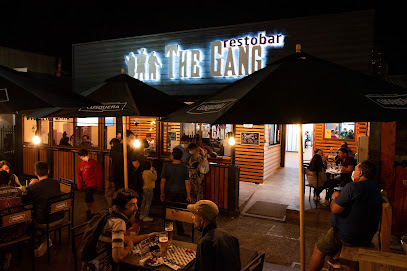
Banús Lounge
Experience the vibrant flavors of Pucón at Banús Lounge, a premier gastropub offering exquisite tapas and tiki cocktails in a lively setting.
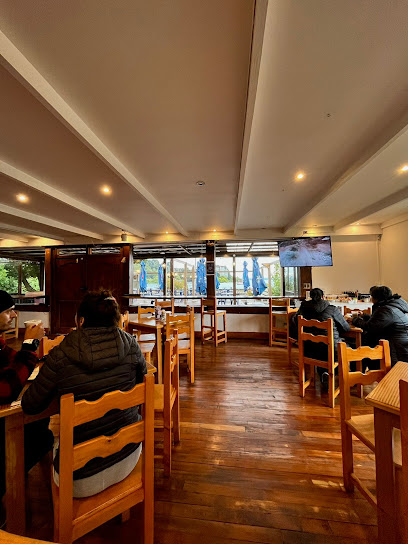
Biergarten Pucón
Experience the fusion of German cuisine and Chilean charm at Biergarten Pucón, a premier gastropub in the heart of Araucanía.
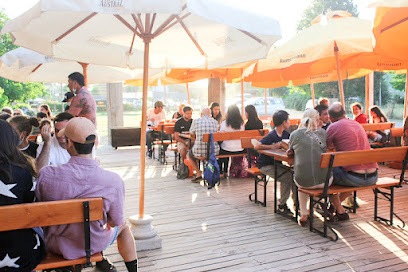
Yayos bar pucon
Discover the vibrant nightlife of Pucón at Yayos Bar, where local culture meets refreshing drinks in a cozy atmosphere.
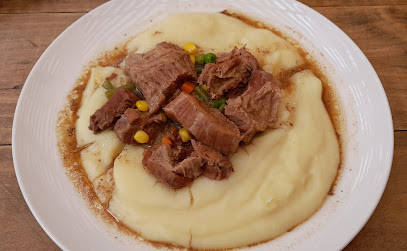
Las terrazas de Pucón
Experience the vibrant ambiance and stunning views at Las Terrazas de Pucón, the perfect bar for relaxation and socializing in scenic Pucón, Chile.
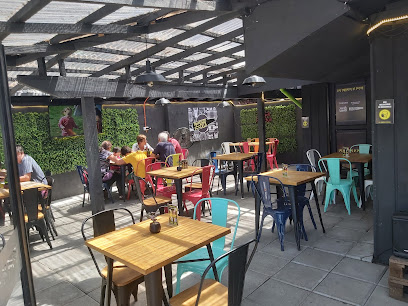
Sunset Live Pucon
Experience the best of local cuisine at Sunset Live Pucon, where delicious grilled dishes meet breathtaking views of Araucanía.
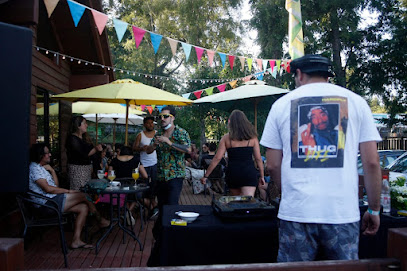
Sunset Lounge Bar Pucón
Experience the breathtaking sunsets and vibrant atmosphere at Sunset Lounge Bar in Pucón, a perfect retreat for travelers seeking relaxation and scenic views.
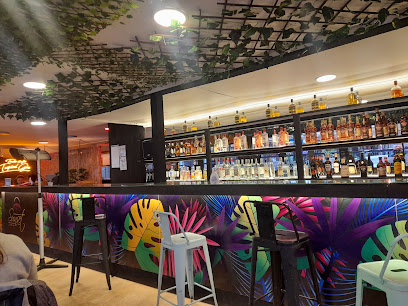
By Roots
Discover the vibrant nightlife at By Roots in Pucón, Araucanía, where local culture meets a delightful bar experience.
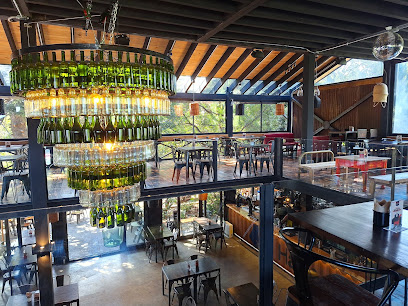
Borgoña Bar / Restaurante
Experience the best of Chilean grilled cuisine at Borgoña Bar / Restaurante in Pucón, where flavor and ambiance come together.
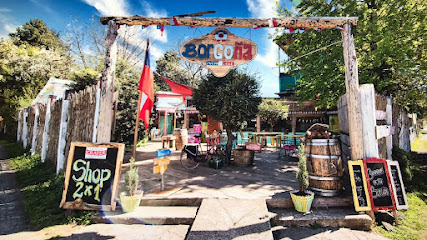
Local Phrases
-
- HelloHola
[oh-lah] - GoodbyeAdiós
[ah-dee-ohs] - YesSí
[see] - NoNo
[noh] - Please/You're welcomePor favor/De nada
[por fah-vor/deh nah-dah] - Thank youGracias
[grah-see-ahs] - Excuse me/SorryPerdón/Disculpa
[pair-dohn/dees-kool-pah] - How are you?¿Cómo estás?
[koh-moh ehs-tahs] - Fine. And you?Bien. ¿Y tú?
[byen. ee too] - Do you speak English?¿Hablas inglés?
[ah-blahs een-glays] - I don't understandNo entiendo
[noh ehn-tyen-doh]
- HelloHola
-
- I'd like to see the menu, pleaseMe gustaría ver el menú, por favor
[may goos-tah-ree-ah vehr ehl meh-noo, poor fah-vor] - I don't eat meatNo como carne
[noh koh-moh kahr-neh] - Cheers!¡Salud!
[sah-lood] - I would like to pay, pleaseMe gustaría pagar, por favor
[may goos-tah-ree-ah pah-gahr, poor fah-vor]
- I'd like to see the menu, pleaseMe gustaría ver el menú, por favor
-
- Help!¡Ayuda!
[ah-yoo-dah] - Go away!¡Vete!
[veh-teh] - Call the Police!¡Llama a la Policía!
[yah-mah ah lah poh-lee-see-ah] - Call a doctor!¡Llama a un médico!
[yah-mah ah oon meh-dee-koh] - I'm lostEstoy perdido
[ehs-toy pair-dee-doh] - I'm illEstoy enfermo
[ehs-toy ehn-fehr-moh]
- Help!¡Ayuda!
-
- I'd like to buy...Me gustaría comprar...
[may goos-tah-ree-ah kohm-prahr] - I'm just lookingSolo estoy mirando
[soh-loh ehs-toy meer-ahn-doh] - How much is it?¿Cuánto cuesta?
[kwan-toh kways-tah] - That's too expensiveEso es demasiado caro
[eh-soh ehs deh-mah-see-ah-doh kah-roh] - Can you lower the price?¿Puedes bajar el precio?
[pweh-dehs bah-hahr ehl pree-syoh]
- I'd like to buy...Me gustaría comprar...
-
- What time is it?¿Qué hora es?
[keh oh-rah ehs] - It's one o'clockEs la una
[ehs lah oo-nah] - Half past (10)Media hora (10)
[meh-dee-ah oh-rah (diez)] - MorningMañana
[mah-nyah-nah] - AfternoonTarde
[tahr-deh] - EveningNoche
[noh-cheh] - YesterdayAyer
[ah-yehr] - TodayHoy
[oy] - TomorrowMañana
[mah-nyah-nah] - 1Uno
[oo-noh] - 2Dos
[dohs] - 3Tres
[trehs] - 4Cuatro
[kwah-troh] - 5Cinco
[seeng-koh] - 6Seis
[says] - 7Siete
[syeh-teh] - 8Ocho
[oh-choh] - 9Nueve
[nweh-veh] - 10Diez
[dyehs]
- What time is it?¿Qué hora es?
-
- Where's a/the...?¿Dónde está...?
[dohn-deh ehs-tah] - What's the address?¿Cuál es la dirección?
[kwal ehs lah dee-rehk-syohn] - Can you show me (on the map)?¿Puedes mostrarme (en el mapa)?
[pweh-dehs mohs-trar-meh (ehn ehl mah-pah)] - When's the next (bus)?¿Cuándo es el próximo (autobús)?
[kwan-doh ehs ehl proh-see-moh (ow-toh-boos)] - A ticket (to ....)Un boleto (a ...)
[oon boh-leh-toh (ah ...)]
- Where's a/the...?¿Dónde está...?
History of Pucon
-
Before the arrival of the Spanish, the area now known as Pucón was inhabited by the Mapuche people. They were skilled farmers, hunters, and fishermen who lived in harmony with the natural surroundings. This indigenous community continues to have a significant cultural influence in the region to this day.
-
In the mid-16th century, Spanish explorers ventured into the region. Despite resistance from the Mapuche, the Spanish attempted to settle and establish control. However, the Mapuche successfully defended their land, leading to a prolonged period of conflict known as the Arauco War.
-
Pucón was officially founded in 1883, following the occupation of Araucanía by the Chilean government. The town initially served as a military outpost intended to control the Mapuche resistance. Over time, it evolved into a small settlement with a focus on agriculture and forestry.
-
The early 20th century saw the beginnings of Pucón’s transformation into a tourist destination. The construction of the railway in the 1930s made the area more accessible, leading to an influx of visitors. The discovery of the region's natural hot springs also contributed to its growing popularity among tourists.
-
German immigrants who settled in the area in the late 19th and early 20th centuries had a significant impact on the cultural landscape of Pucón. They introduced new agricultural techniques, architectural styles, and culinary traditions, many of which are still evident in the town today.
-
Today, Pucón is renowned for its stunning natural beauty, including the Villarrica Volcano, Lake Villarrica, and numerous national parks. The town has become a hotspot for adventure tourism, offering activities such as skiing, white-water rafting, and hiking. Despite its growth, Pucón maintains a delicate balance between development and preserving its natural and cultural heritage.
Pucon Essentials
-
Pucon is located in the southern part of Chile, in the Araucania Region. The nearest airport is La Araucanía International Airport (ZCO) in Temuco, approximately 100 kilometers away. From Temuco, you can take a bus, rent a car, or hire a taxi to Pucon. Buses run regularly from Santiago to Pucon, with the journey taking around 10-12 hours. Alternatively, you can take a train from Santiago to Temuco and then a bus or taxi to Pucon.
-
Pucon is a small town, and many attractions are within walking distance. Local buses and colectivos (shared taxis) are affordable and convenient for getting around town and to nearby attractions. Taxis are also available but can be more expensive. Renting a car is an excellent option if you want to explore the surrounding areas at your own pace.
-
The official currency in Chile is the Chilean Peso (CLP). Credit and debit cards are widely accepted in hotels, restaurants, and shops in Pucon. However, it is advisable to carry some cash for smaller establishments and markets. ATMs are readily available in Pucon, but be aware that some ATMs may charge a fee for withdrawals.
-
Pucon is generally a safe destination for tourists. However, like any travel destination, it is advisable to take standard precautions. Avoid walking alone at night in unfamiliar areas and keep an eye on your belongings in crowded places. There are no specific high-crime areas targeting tourists, but it is always best to stay vigilant and aware of your surroundings.
-
In case of emergency, dial 133 for the police, 131 for an ambulance, and 132 for the fire department. Pucon has a local police station and medical facilities, including a hospital and pharmacies. It is recommended to have travel insurance that covers medical emergencies. For minor health issues, you can purchase over-the-counter medications at local pharmacies.
-
Fashion: Do dress in layers, as the weather can change quickly. Comfortable shoes are a must for exploring the outdoors. Avoid wearing flashy jewelry. Religion: Do be respectful when visiting religious sites, even though Pucon is not particularly known for its religious landmarks. Public Transport: Do be respectful to drivers and fellow passengers. Don’t eat or drink on public transport. Greetings: Do greet people with a friendly 'Hola' or 'Buenos días'. A handshake is common when meeting someone for the first time. Eating & Drinking: Do try local delicacies such as 'curanto' and 'pastel de choclo'. Don’t refuse food or drink offerings, as it is considered impolite.
-
To experience Pucon like a local, visit the Feria Artesanal (Artisan Market) where you can buy handmade crafts and local products. Take a dip in the natural hot springs, known as 'termas', which are popular among locals. Engage in outdoor activities such as hiking, rafting, and skiing, depending on the season. Try to learn a few basic phrases in Spanish to connect better with the locals.
Trending Landmark in Pucon
Nearby Cities to Pucon
-
Things To Do in Temuco
-
Things To Do in Valdivia
-
Things To Do in Osorno
-
Things To Do in Bariloche
-
Things To Do in San Carlos de Bariloche
-
Things To Do in Puerto Varas
-
Things To Do in Concepción
-
Things To Do in Curicó
-
Things To Do in Rancagua
-
Things To Do in San Rafael
-
Things To Do in Santiago
-
Things To Do in Valparaíso
-
Things To Do in Viña del Mar
-
Things To Do in Mendoza
-
Things To Do in San Juan











